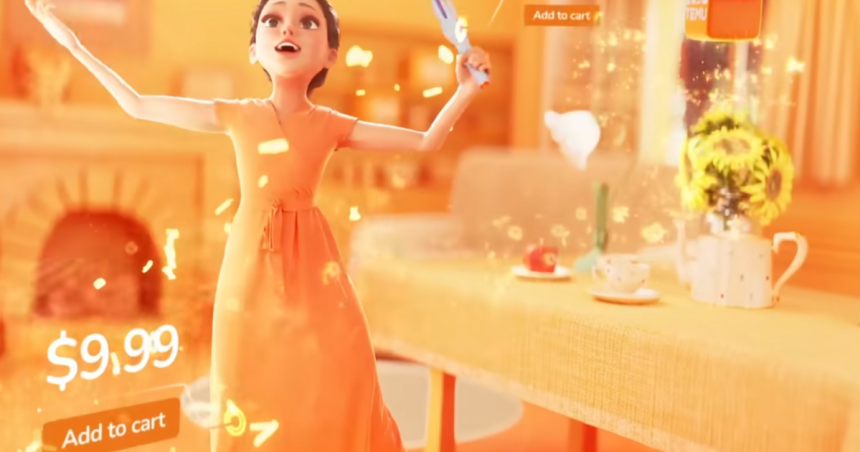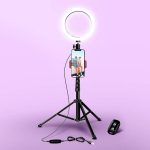Within 15 minutes of listening, Simon Kringel found himself humming a Super Bowl ad.
“Ooh, ooh, Temu…Ooh, ooh, Temu, all of my wishes came true.”
“It was pretty immediate,” Kringel, founder and director of unmute, a creative sound agency that has worked with clients like Lego and eBay, told Marketing Brew. “It has that annoying flavor to it. You don’t want to be stuck with it, but you are.”
After Sunday’s game, Kringel might not be the only one cooing (perhaps through clenched teeth) the saccharine refrain that aired around half a dozen times on Sunday night. It’s part of a spending wave that’ll see Temu (pronounced teh-moo, as the jingle reminds us) spend an estimated $3 billion on advertising this year, according to JP Morgan analysts cited by the Wall Street Journal.
The buy, which may have cost as much as $21 million for the three spots that aired during the game alone, quickly became something of a viral sensation, with viewers expressing surprise at the frequency of the ads, the brand’s tagline to “shop like a billionaire,” and, of course, the jingle itself. The platform earned 32% of all “branded and advertising conversations” during the game, or around 33,000 mentions on platforms like X, Facebook, and Reddit, according to Brandwatch, which analyzes social data.
Temu’s ad and its frequency, which Ad Age described as “something of a recurring nightmare,” could benefit from the “mere exposure effect,” in which people tend to develop a preference for things that are familiar, even if they didn’t prefer it at the outset, Kringel explained.
“In audio terms, the mere exposure effect is, if you hear something enough times, you will eventually like it,” he said. “Eventually it’ll stick in your ears, and you’ll start humming it.”
Jingle bowl rock
As an art form, and with a few recent exceptions, the advertising jingle has largely been cast aside, falling from a commercial peak in 1971 when Coca-Cola’s “I’d like to buy the world a Coke” was released as a real song, Josh Rabinowitz, a music consultant who’s spent nearly 20 years placing songs, jingles, and original scores in ads, and who previously served as director of music at the Grey Group, said.
Get marketing news you’ll actually want to read
Marketing Brew informs marketing pros of the latest on brand strategy, social media, and ad tech via our weekday newsletter, virtual events, marketing conferences, and digital guides.
“The jingle was kind of abandoned because it was really annoying,” Rabinowitz said.
Still, music can be an effective branding tool, as Temu may have already proven—and has attempted in the past. The platform’s first Super Bowl ad, which aired last year, featured a throaty verse informing viewers that the protagonist was “shopping like a billionaire” as she and others around her bought dresses, shoes, wigs, and jewelry. That ad felt “a bit more sophisticated” than this year’s spot, Kringel said.
But it didn’t get people talking like last Sunday’s spot, which evoked a more childlike aesthetic. “The animation style feels like a Disney movie, in a way, and the song sounds like a Disney song,” Kringel said, adding that his 11-year-old daughter knew Temu well and “can relate to that style of music, that whole Disney aesthetic.”
This year’s jingle, which Rabinowitz described as “very mainstream,” with “almost a Taylor Swift vibe,” could also “annoy the hell out of people,” he said.
Geoffrey Goldberg, chief creative officer at the agency Movers+Shakers, which has made music for Amazon and e.l.f Cosmetics, called the singer of the tune “unrecognizable,” which, he said, was especially noticeable when juxtaposed against ads featuring musicians like Beyoncé and Cardi B. (Rabinowitz described the jingle as sounding almost “AI-generated.” It’s apparently not: The musicians Carly and Martina took credit for the song on Instagram.)
“From the reaction we’re seeing on social…sonically, it did not have the fresh sound that is resonating today with younger consumers,” Goldberg told Marketing Brew via email.
Still, if people are humming—or cringing—maybe none of that matters.
“If the jingle is hooky and catchy…I think it’s a great way of branding,” Rabinowitz said. “Is it cool and authentic? Absolutely not.”
Read the full article here








